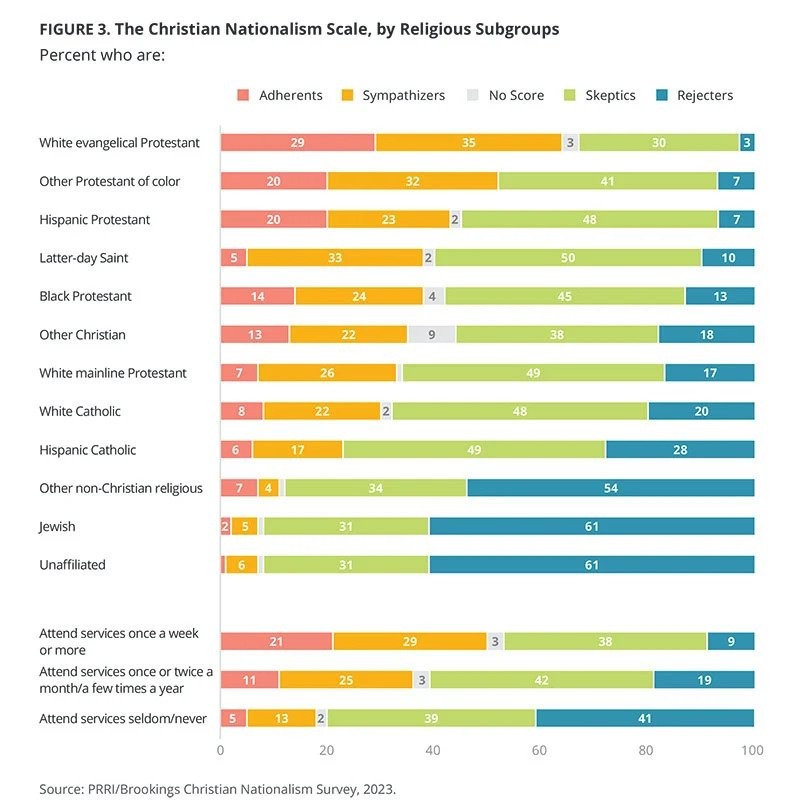Poll: A third of US adults are Christian nationalists

A new survey finds that fewer than a third of adults in the United States, or 29 percent, qualify as Christian nationalists, and of those, two-thirds define themselves as White evangelicals.
The survey of 6,212 US adults by the Public Religion Research Institute and the Brookings Institution is the largest yet to gauge the size and scope of Christian nationalist beliefs.
It finds that 10 percent of US adults are avowed Christian nationalists, what the survey calls “adherents,” while an additional 19 percent are sympathetic to Christian nationalist ideals.





